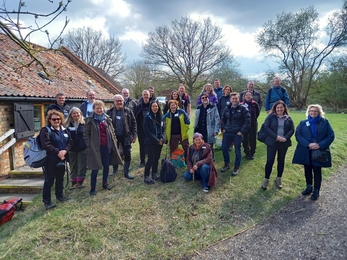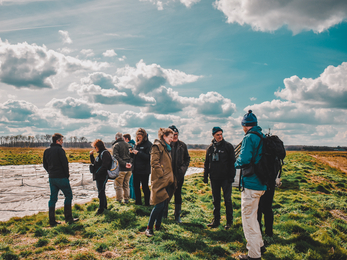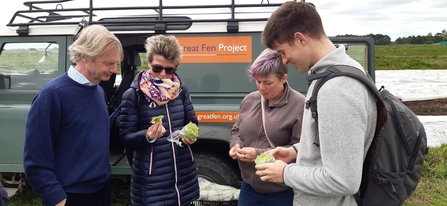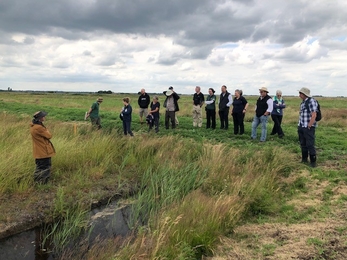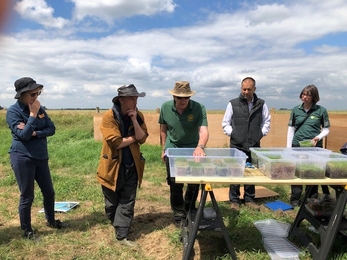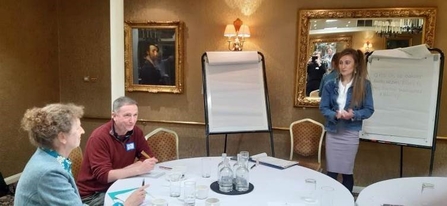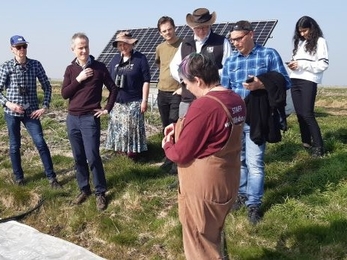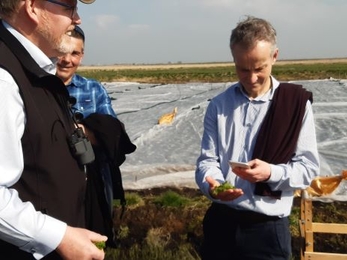Paludiculture Progress
We are delighted to say that we are pressing ahead with the purchase of a second location for paludiculture at Speechly’s Farm in the centre of the Great Fen. This is part of our transformational Peatland Progress project (funded by the National Lottery Heritage Fund) which will complete the land link between new wetland in the north of the Great Fen and that in the south, making the Great Fen bigger, better and more joined up for wildlife.
At the new farm we will be creating over 100 hectares of new wetland as well as a bigger (up to 20ha) demonstration site for wet farming. Here we will showcase the economic potential of wet farming crops including sphagnum moss, use an engineered wetland to provide clean water to support Woodwalton Fen NNR, and undertake the science to demonstrate prevention of carbon loss from rewetted peat soils. We are working with ecological consultants OHES Environmental who are well known to us, having designed wetland in several areas of the Great Fen previously.
At our existing paludiculture site, Water Works, work has continued planting sphagnum moss and site maintenance. 29 volunteer and staff planting parties have taken place between January – June 2022, and with their invaluable support, sphagnum planting is now complete! Thank you so much to everyone who has volunteered their time.





